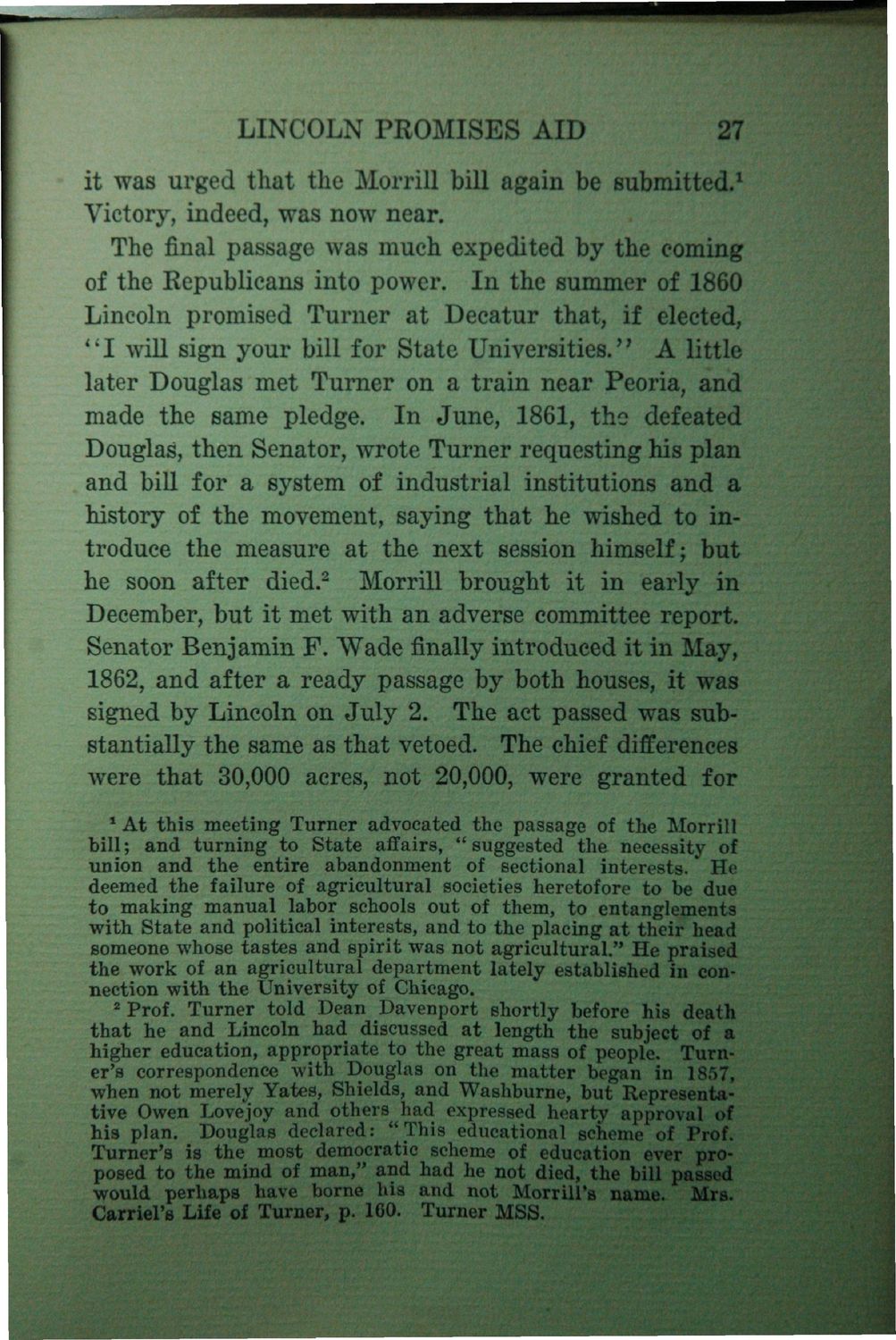| |
| |
Caption: Book - History of the University (Nevins)
This is a reduced-resolution page image for fast online browsing.

EXTRACTED TEXT FROM PAGE:
LINCOLN PROMISES AID 27 it was urged that the Morrill bill again be submitted 1 Victory, indeed, was now near. The final passage was much expedited by the coming of the Republicans into power. In the summer of 1860 Lincoln promised Turner at Decatur that, if elected, " I will sign your bill for State Universities." A little later Douglas met Turner on a train near Peoria, and made the same pledge. In June, 1861, the defeated Douglas, then Senator, wrote Turner requesting his plan and bill for a system of industrial institutions and a history of the movement, saying that he wished to introduce the measure at the next session himself; but he soon after died.2 Morrill brought it in early in December, but it met with an adverse committee report. Senator Benjamin F . "Wade finally introduced it in May, 1862, and after a ready passage by both houses, it was signed by Lincoln on July 2. The act passed was substantially the same as that vetoed. The chief differences were that 30,000 acres, not 20,000, were granted for At this meeting Turner advocated the passage of the Morrill bill; and turning to State affairs, "suggested the necessity of union and the entire abandonment of sectional interests. He deemed the failure of agricultural societies heretofore to be due to making manual labor schools out of them, to entanglements with State and political interests, and to the placing at theifhead someone whose tastes and spirit was not agricultural," He praised the work of an agricultural department lately established in connection with the University of Chicago. 2 Prof. Turner told Dean Davenport shortly before his death t h a t he and Lincoln had discussed at length the subject of a higher education, appropriate to the great mass of people. Turner's correspondence with Douglas on the matter began in 1857, when not merely Yates, Shields, and Washburne, but Representative Owen Lovejoy and others had expressed hearty approval of his plan. Douglas declared: "This educational scheme of|t*rof. Turner's is the most democratic scheme of education ever proposed to the mind of man," and had he not died, the bill passed would perhaps have borne his and not Morrill's name. Mrs. Carriers Life of Turner, p. 160. Turner MSS. 1
| |